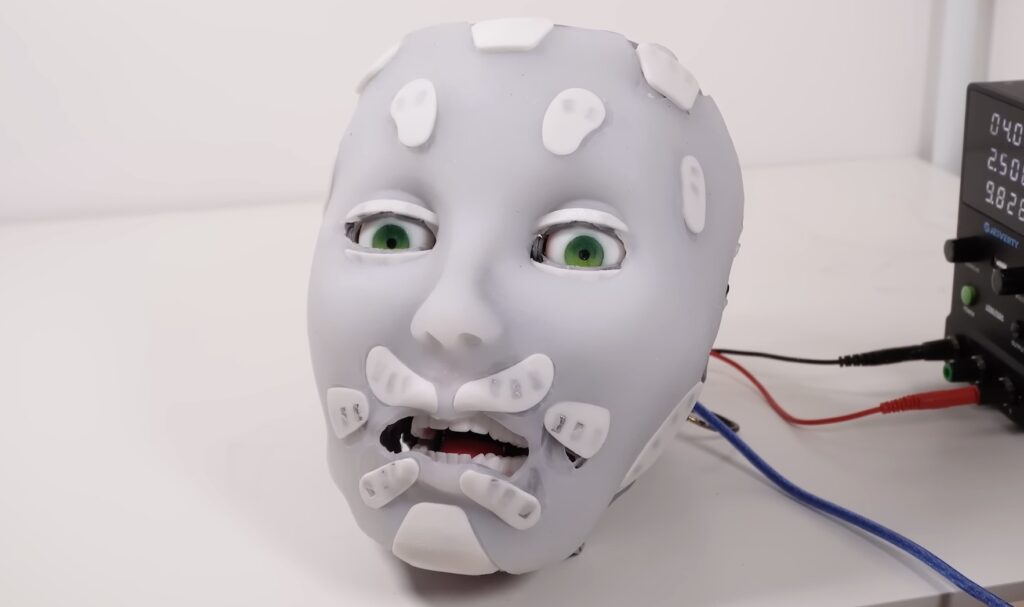
The human face is remarkably complex, with 43 different muscles contorting the skin in all kinds of ways. Some of that is utilitarian — your jaw muscles are good for chewing, after all. But a lot of it seems to be the result of evolution giving us fantastic non-verbal communication abilities. That isn’t an easy thing to replicate by artificial means, but Will Cogley managed to make this silicone-skinned animatronic head that is frighteningly realistic.
Most people, when seeing this animatronic head, will feel something between unease and outright disgust or terror. Cogley purposefully exaggerated the movements and proportions to give the head a more cartoonish appearance in an attempt to navigate around the uncanny valley, but it still looks a bit too human to be comfortable.
That is largely the result of the realistic silicone skin that Cogley molded and then attached onto the internal skeleton (skull?) frame using magnets. That attachment method is pretty similar to the way our own people skin attaches to our muscles and tendons, and it produces expressions that are quite human.
The internal skeleton was 3D-printed and actuated by a plethora of small servo motors. Cogley designed a custom shield PCB for an Arduino Mega 2560 to control the servos. He hasn’t yet programmed it beyond a handful of basic movements and facial expressions, but he’s set it up so that there is a great deal of potential for future programmatic upgrades.
Going forward, Cogley wants to experiment with some other molding techniques and so we may see an even more realistic version soon.
The post This frighteningly realistic animatronic head features expressive silicone skin appeared first on Arduino Blog.
